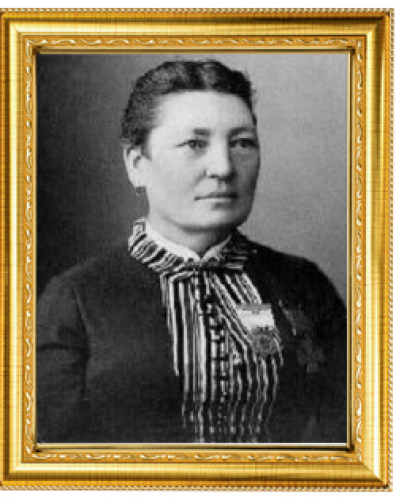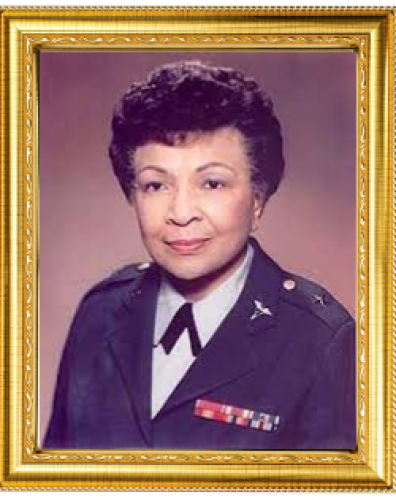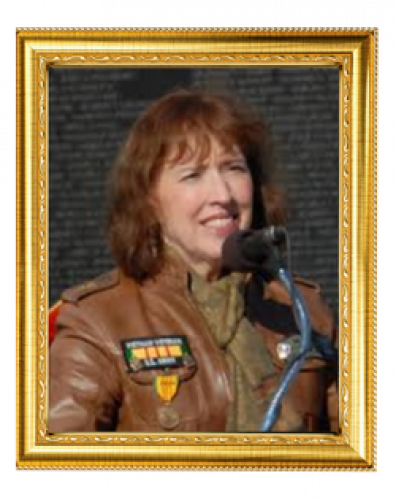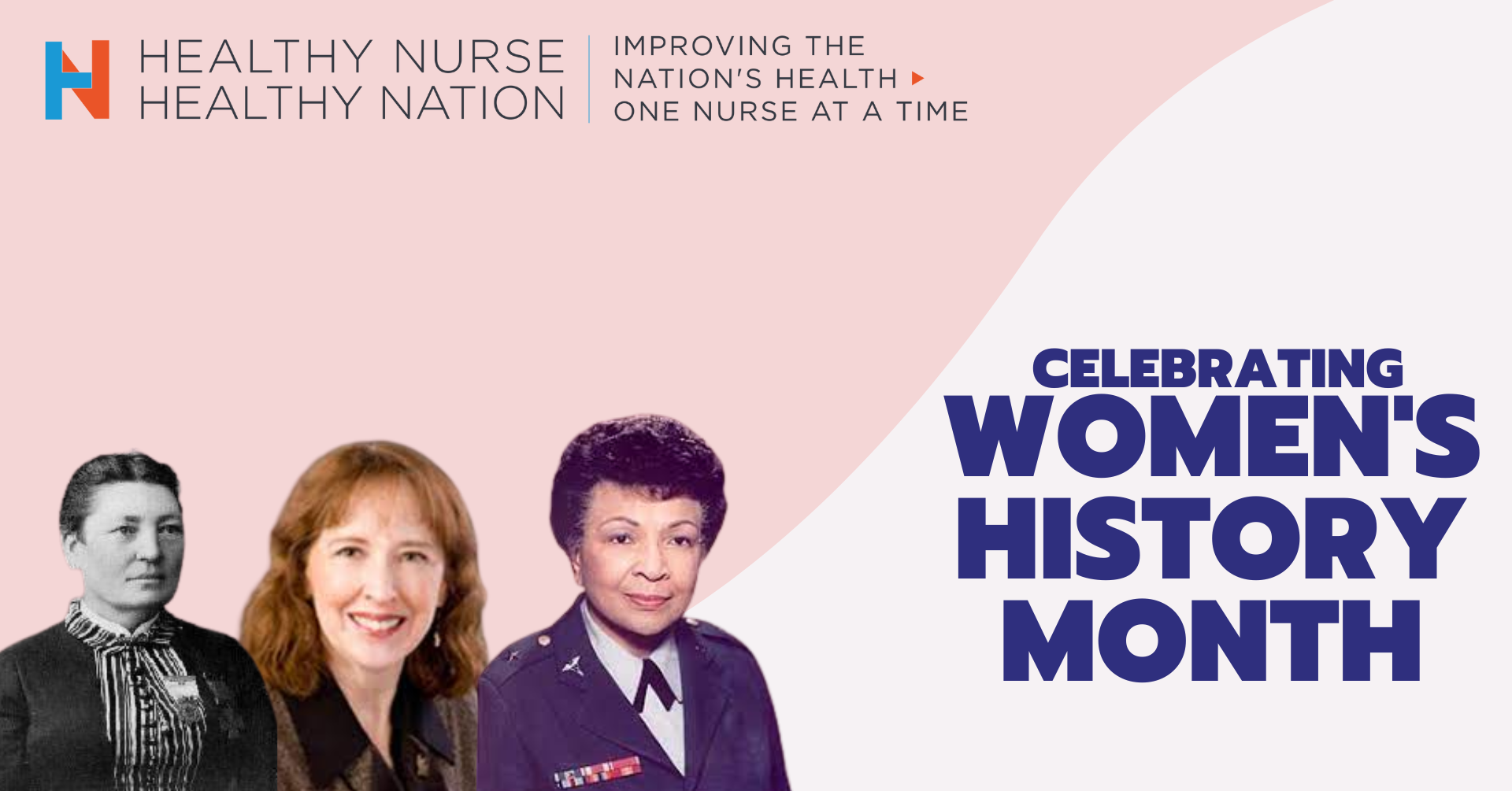Healthy Nurse, Healthy Nation™ Blog - Shining A Light On Nurses Who Came Before Us
Published
“By learning about the past, you come to understand the present, so you may make educated decisions about the future.”
Richelle Mead, American author
When we think of the history of nurses, we often recall Florence Nightingale, the founder of modern nursing. But many other women broke barriers and shaped both the field of nursing and life for women in the United States.
Women’s History Month, celebrated every March, is the perfect opportunity to honor and learn from the nurses who came before us. These women set an example of what it takes to be a great nurse — and an exceptional human being. Let their stories inspire and motivate us to bring our best to our nursing careers every day.
 Sarah Emma Edmonds
Sarah Emma Edmonds
The epitome of courage, Sarah Emma Edmonds is notable for her work as a field nurse during the Civil War, where she tended to many casualties. She helped soldiers at Antietam, one of the bloodiest battles of the Civil War.
Sarah’s courage extended beyond her work as a field nurse. Many sources say that Sarah used aliases to act as a Union spy. She entered the Confederate army on many occasions to gather valuable information.
“Sarah Emma Edmonds had to disguise herself as a man to escape abuse and earn a livable wage,” says Holly Carpenter, BSN, RN, senior policy advisor at the American Nurses Association. “She was a book salesperson, nurse, mail-carrier, and soldier for the Union Army.”
Before her death, Sarah published a book about her experiences called “Nurse and Spy in the Union Army.” The military gave Sarah an honorable discharge, a government pension, and admittance to the Grand Army of the Republic as its only female member.
“Sarah’s bravery and commitment to herself and to her country is inspiring to me, not only as a nurse, but as a woman,” says Carpenter.
What can we learn from Sarah’s heroism?
 Hazel Johnson-Brown
Hazel Johnson-Brown
As a black woman and nurse, educator, and Army commander, Hazel Johnson-Brown dealt with prejudice and adversity throughout
her life and career. In 1979, she became the first Black female general and the first Black chief of the United States Army Nursing Corps. Hazel was a true leader with an undeniable passion for medicine and education.
During the Vietnam War, Hazel trained nurses for employment in both the operating room and battlefield medical tent. And at a time when white nurses outnumbered Black nurses in the United States by a 12-to-1 ratio, she used her leadership position to promote equality in the Army Nursing Corps. During this time, Hazel:
“Hazel Johnson-Brown, Mary Mahoney, Mary Seacole, Laureann Simms, Estelle Massey Riddle Osborne, and Bernadine Lacey are only a few from a long list of Black history makers who not only paved the road for black nurses but reshaped the nursing profession and healthcare overall,” says Boston-Leary.
“These trailblazers overcame so many odds with self-determination, strength, courage, unyielding resilience, and grace. Their stories must continue to be told for us to be inspired to positively disrupt the status quo, embrace discomfort, and get into good trouble for the betterment of all nurses, regardless of race, gender, sex, creed, background, preference, or color. A diverse and inclusive nursing profession best positions us to equitably care for the communities we collectively serve.”
What can we learn from Hazel’s example?
 Diane Carlson Evans
Diane Carlson Evans
Selflessness is necessary in nursing — you must be willing to put your patients’ needs first. This was especially true for Diane Carlson Evans, who served as a military nurse during the Vietnam War. She spent months treating wounds from bullets, shrapnel, grenades, helicopter crashes, burns, malaria, and more. Diane and other military nurses saved countless lives.
Diane’s experiences during the war — and after coming home to hostile Americans who shamed her for her service — took a toll on her health. She finally found peace at the dedication of the Vietnam Memorial Wall in 1982, when she made it her mission to honor the women who served beside the men.
It took 10 years of diligence, but Diane pushed for the creation of the Vietnam Women’s Memorial in 1993. Her perseverance proved that women in the military — and nurses in general — deserve recognition for their selfless contributions.
What can we learn from Diane’s story?
Learn From Other Women Nurses
Sarah, Hazel, and Diane were women nurses who changed history. While we may feel humbled by their greatness, we can also feel inspired by and grateful for the lives they led — their perseverance, courage, and tenacity. Let’s bring that energy and dedication into our patient care and our lives.
For hundreds of years, nurses have made the world a better place. And together, we’ll continue to do just that, improving not just our quality of life, but everyone’s.

Not a member of Healthy Nurse, Healthy Nation (HNHN) yet? Join today!
Sign up for our monthly challenges!
Women’s History Month, celebrated every March, is the perfect opportunity to honor and learn from the nurses who came before us. These women set an example of what it takes to be a great nurse — and an exceptional human being. Let their stories inspire and motivate us to bring our best to our nursing careers every day.
 Sarah Emma Edmonds
Sarah Emma EdmondsThe epitome of courage, Sarah Emma Edmonds is notable for her work as a field nurse during the Civil War, where she tended to many casualties. She helped soldiers at Antietam, one of the bloodiest battles of the Civil War.
Sarah’s courage extended beyond her work as a field nurse. Many sources say that Sarah used aliases to act as a Union spy. She entered the Confederate army on many occasions to gather valuable information.
“Sarah Emma Edmonds had to disguise herself as a man to escape abuse and earn a livable wage,” says Holly Carpenter, BSN, RN, senior policy advisor at the American Nurses Association. “She was a book salesperson, nurse, mail-carrier, and soldier for the Union Army.”
Before her death, Sarah published a book about her experiences called “Nurse and Spy in the Union Army.” The military gave Sarah an honorable discharge, a government pension, and admittance to the Grand Army of the Republic as its only female member.
“Sarah’s bravery and commitment to herself and to her country is inspiring to me, not only as a nurse, but as a woman,” says Carpenter.
What can we learn from Sarah’s heroism?
- Stand up for what’s right — even when it’s frightening.
- Put yourself out there, no matter your gender. Sara was a woman in a man’s war, and her example demonstrated that women can do great things.
- One person can make a huge difference, even if it doesn’t feel like it in the moment.
 Hazel Johnson-Brown
Hazel Johnson-BrownAs a black woman and nurse, educator, and Army commander, Hazel Johnson-Brown dealt with prejudice and adversity throughout
her life and career. In 1979, she became the first Black female general and the first Black chief of the United States Army Nursing Corps. Hazel was a true leader with an undeniable passion for medicine and education.
During the Vietnam War, Hazel trained nurses for employment in both the operating room and battlefield medical tent. And at a time when white nurses outnumbered Black nurses in the United States by a 12-to-1 ratio, she used her leadership position to promote equality in the Army Nursing Corps. During this time, Hazel:
- Established scholarships for Reserve Officer Training Corps (ROTC) nurses
- Encouraged more diverse recruitment by providing summer nursing clinical camps for ROTC cadets
- Wrote the first Army Nursing Corps Standards of Practice, which standardized processes for Army nurses
- Created Army nursing conferences to encourage sharing nursing research and promoting and publicizing nurses' work
“Hazel Johnson-Brown, Mary Mahoney, Mary Seacole, Laureann Simms, Estelle Massey Riddle Osborne, and Bernadine Lacey are only a few from a long list of Black history makers who not only paved the road for black nurses but reshaped the nursing profession and healthcare overall,” says Boston-Leary.
“These trailblazers overcame so many odds with self-determination, strength, courage, unyielding resilience, and grace. Their stories must continue to be told for us to be inspired to positively disrupt the status quo, embrace discomfort, and get into good trouble for the betterment of all nurses, regardless of race, gender, sex, creed, background, preference, or color. A diverse and inclusive nursing profession best positions us to equitably care for the communities we collectively serve.”
What can we learn from Hazel’s example?
- With tenacity, determination, and courage, we can break barriers.
- It can take years of perseverance to see change, so keep going, even when the change you want doesn’t happen quickly.
- Leadership positions provide opportunities for greater influence.
 Diane Carlson Evans
Diane Carlson EvansSelflessness is necessary in nursing — you must be willing to put your patients’ needs first. This was especially true for Diane Carlson Evans, who served as a military nurse during the Vietnam War. She spent months treating wounds from bullets, shrapnel, grenades, helicopter crashes, burns, malaria, and more. Diane and other military nurses saved countless lives.
Diane’s experiences during the war — and after coming home to hostile Americans who shamed her for her service — took a toll on her health. She finally found peace at the dedication of the Vietnam Memorial Wall in 1982, when she made it her mission to honor the women who served beside the men.
It took 10 years of diligence, but Diane pushed for the creation of the Vietnam Women’s Memorial in 1993. Her perseverance proved that women in the military — and nurses in general — deserve recognition for their selfless contributions.
What can we learn from Diane’s story?
- You are not alone. Other nurses are experiencing many of the same emotions, challenges, and hardships. Find camaraderie in them.
- Seeing the results of your efforts may take time, but it’s worth it.
- Your selflessness makes a difference to your patients, even if you don’t hear the words “thank you.”
Learn From Other Women Nurses
Sarah, Hazel, and Diane were women nurses who changed history. While we may feel humbled by their greatness, we can also feel inspired by and grateful for the lives they led — their perseverance, courage, and tenacity. Let’s bring that energy and dedication into our patient care and our lives.
For hundreds of years, nurses have made the world a better place. And together, we’ll continue to do just that, improving not just our quality of life, but everyone’s.

Not a member of Healthy Nurse, Healthy Nation (HNHN) yet? Join today!
Sign up for our monthly challenges!
Blog Quality of Life
03/14/2023 9:28am CDT



Post a Comment or Question